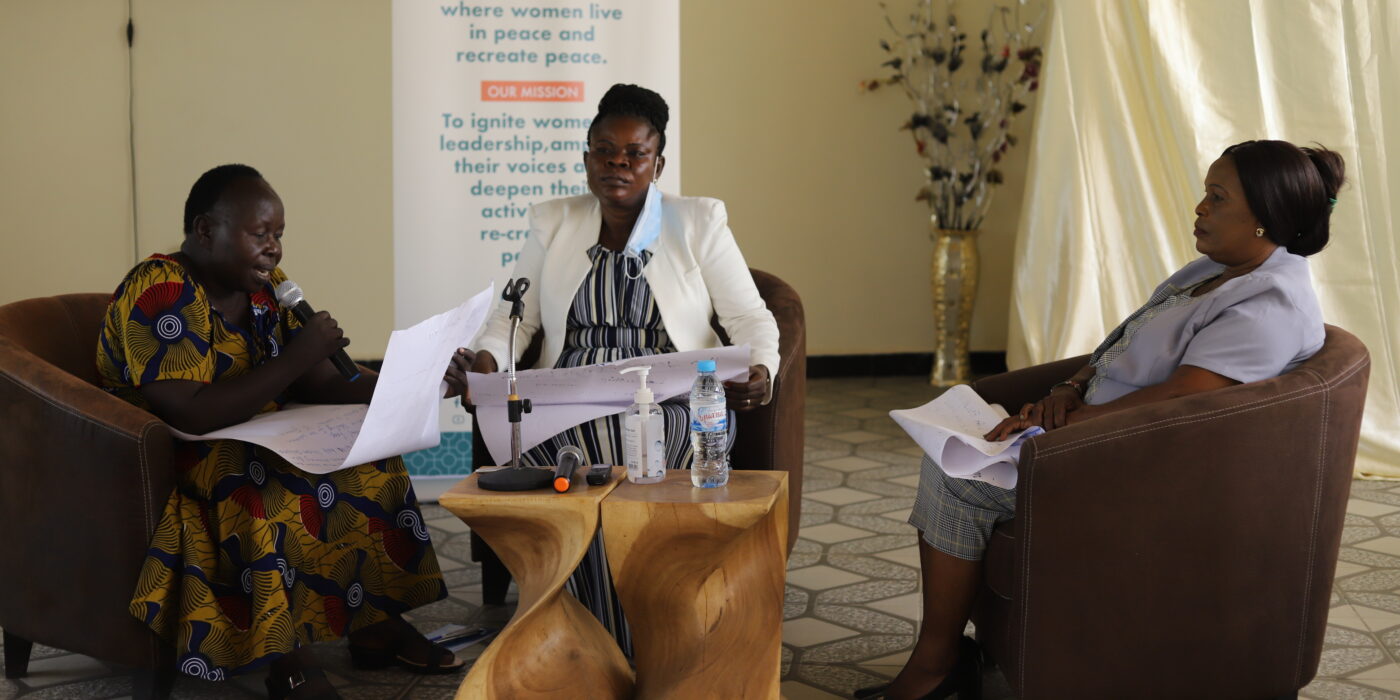In order to bridge the gap between senior women leaders and young women and highlight the role young people play in ensuring sustainable peace and good governance, The Peace Centre held four dialogues with 51 Women peacebuilders, Gender Focal persons, Women Parliamentarians and representatives from CSOs as well as young women leaders from 18th to 20th May 2021 Dembesh Hotel in Juba, South Sudan. The dialogue was convened in collaboration with Community Empowerment for Progress Organization supported by the Forum for Women and Development.
The dialogues involved reflections on women and young women leaders’ leadership journeys, progress, their impact in the community and celebrate their achievements as women and leaders. From this, they were able to share best practices and lessons picked up throughout their leadership journey. They also reflected on UNSCR 1325 and the WPS training for Gender Focal Persons. Gender focal persons took up the task of championing the fight against the stigma on women’s active inclusion in decision-making processes.
Women fought very hard for this peace and women must fight in political parties and in parliament to claim leadership and advance the 35% representation of women- Director General, Ministry of Agriculture and Food Security.
Promoting young women’s participation in peacebuilding goes beyond advocating for spaces for them. It requires building their technical competencies and mentorships. During the dialogues, leaders shared their blended experiences on their personal leadership journeys while inspiring young women to take up their leadership and peacebuilding. Young Women leaders also shared how they have influenced peace in their communities;
Today, I am a leader who can help others. I know that my sister’s problem is my problem so let us not leave anyone behind. Rose Juma, Young Woman Peacebuilder
Rose shared that the 2018 training inspired her to begin advocating for girl child education. She visited schools in her community where she conducted dialogues with the school going girls and advised them against opting for marriage instead of pursuing education. Along with other members of her community, they formed a group called Wash Me; the group has been able to raise awareness on COVID-19 and adhering to SOPs to members of the community through filling in the information gaps on the virus within the community. They also distributed food items and masks to community members during the lockdown.
While mapping key peace processes, women leaders discussed how young women could be supported to get into leadership through mentorship, creating spaces, opportunities and processes where women could take part and influence peace and security in South Sudan as well as opportunities for young women to influence peace and security. From the discussions, we also gathered that COVID-19 has been detrimental to women and young girls who have suffered not an only economic loss but also socially are faced with all forms of GBV that were escalated by the pandemic. Politically, a lot of processes have been interfered with including the implementation of the Peace Agreement and the development of the 2nd national action plan on UNSCR 1325. As a result, there is a need to devise strategies to fit within the current context, as well as include new activities that suit the current needs of women and young women leaders in South Sudan.
Women’s International Peace Centre has over the years trained women leaders to address injustice, powerlessness and human rights abuses. This has enabled women to participate in peacebuilding processes and influence their outcomes for more gender-responsive and sustainable peace. Since 2008 to date, over 100 alumnae in South Sudan of the feminist leadership development institute have strengthened their technical expertise in peacebuilding leading some to join public leadership and governance.
Through these dialogues, it was evident that the engagements in South Sudan have been of significance. Since the leadership institute in 2008, (8) alumni have been elected/appointed as members of parliament, (2) were members of the Jubek Assembly, (13) hold leadership positions in Government institutions. The alumni also share one common testimony; that their lives changed after the training. The alumni have been active ambassadors of peace within their communities and have continued to share the knowledge they acquire with others.



